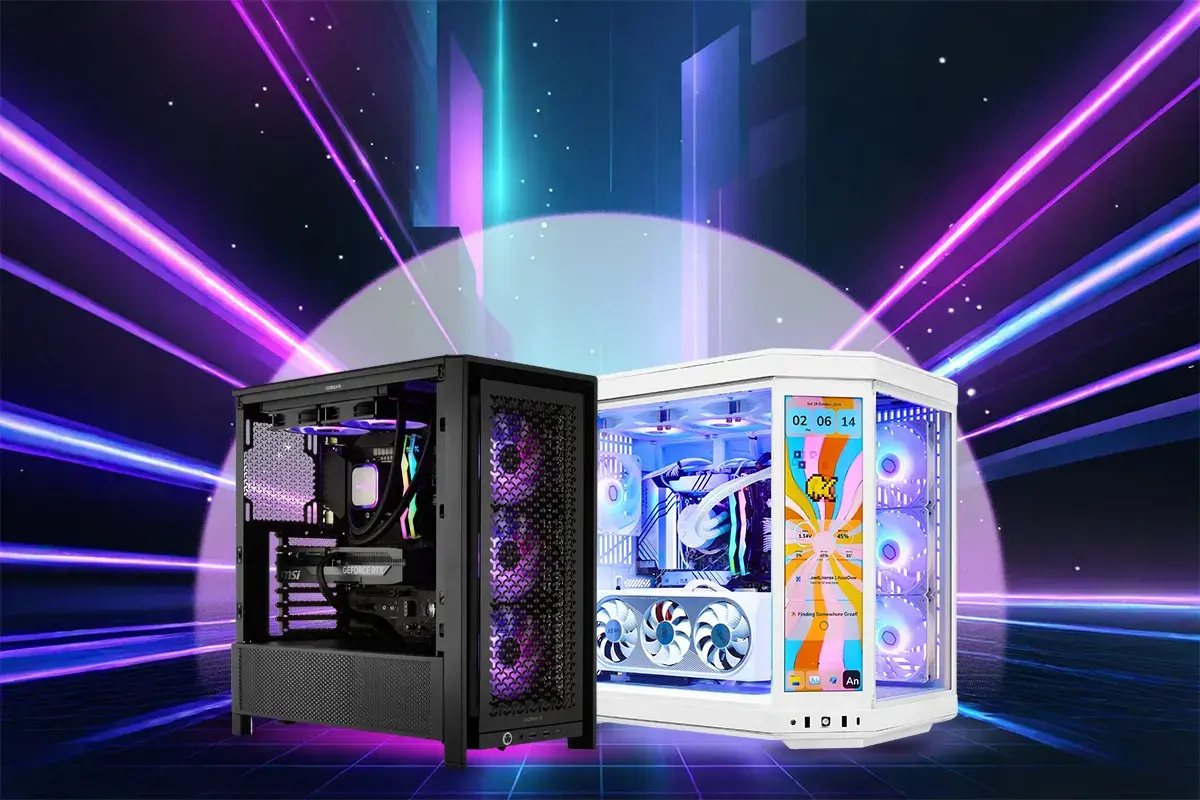What to Look for When Buying a Gaming PC: A Beginner’s Guide

In the dynamic world of gaming, choosing the right equipment can significantly influence your overall experience. When it comes to performance, comfort, and enjoyment, understanding what to look for when buying a gaming PC becomes vital.
This comprehensive guide will walk you through essential factors to consider, helping you make an informed decision tailored to your gaming needs.
Why Choosing the Right Gaming PC Matters
Selecting the right gaming PC is more than just a purchase; it’s an investment in your gaming journey. A well-chosen PC can offer:
- Enhanced Performance: Play games at higher settings and enjoy smoother gameplay.
- Future-Proofing: Avoid frequent upgrades by selecting parts that can withstand evolving game demands.
- Better Value: Make a purchase that optimally uses your budget while fulfilling your gaming needs.
Know Your Gaming Needs
Types of Games (AAA vs. Indie)
Before making a decision, think about the types of games you enjoy:
- AAA Games: High-end titles often require robust hardware. Examples include “Cyberpunk 2077” and “Red Dead Redemption 2.” If you prefer stunning graphics and expansive game worlds, focus on performance-oriented components.
- Indie Games: These games may be less demanding, allowing for a more budget-friendly setup. Titles like “Celeste” and “Hades” can run on more modest hardware, so you may not need to invest heavily in a high-end PC.
Resolution and Frame Rate Expectations
Resolution and frame rate significantly affect your experience:
- 1080p: Standard for most games and balances performance and visuals.
- 1440p (QHD): A step up for those seeking higher detail, ideal for competitive gaming.
- 4K: Requires top-tier hardware for smooth performance, but offers stunning visual fidelity.
Aim for a system capable of meeting your resolution and frame rate goals for an optimal gaming experience.
Key Gaming PC Components to Evaluate
CPU (Central Processing Unit)
The CPU is the brain of your gaming PC. Look for:
- Core Count: More cores can efficiently handle multitasking.
- Clock Speed: Higher speeds improve performance.
Popular options include AMD Ryzen and Intel Core processors.
GPU (Graphics Processing Unit)
The GPU is crucial for gaming performance. Factors include:
- VRAM: A minimum of 6GB is recommended for modern games.
- Ray Tracing Capability: Supports realistic lighting and effects.
Graphics cards from NVIDIA (GeForce RTX series) and AMD (Radeon RX series) are popular choices.
RAM
- With a minimum of 16GB of RAM, you ensure smooth gameplay. More demanding games may benefit from 32GB.
Storage: SSD or HDD
- SSD (Solid State Drive): Provides faster load times and performance.
- HDD (Hard Disk Drive): Offers more storage at lower costs but is slower.
A combination of both is often a good choice, offering speed and sufficient space.
Cooling Solution and Power Supply
- Cooling Solutions: Proper cooling is essential to avoid overheating issues, especially during prolonged gaming sessions.
- Power Supply Unit (PSU): Ensure your PSU offers adequate wattage and has good efficiency ratings (80 PLUS certified).
Future-Proofing & Upgradability
A gaming PC should be adaptable to changing technologies:
- Expandability: Look for motherboards with extra slots for additional RAM or graphics cards.
- Port Options: Ensure there are enough USB and other ports for peripherals.
- Motherboard Compatibility: Before committing, verify that the motherboard supports your choice of CPU and RAM.
Budget & Performance Balance
- Entry-Level: Suitable for casual gamers, around $500-$800. Expect limited performance for AAA titles.
- Mid-Range: Offers a solid gaming experience, priced between $800-$1,500.
- High-End: Enthusiast-level gaming PCs begin at $1,500 and can exceed $3,000.
Cost-Saving Tips for Smart Buyers
- Build Your Own: Assembling a PC allows for customization and often saves money.
- Sales and Discounts: Watch for sales around holidays or during major gaming events.
Wrap Up
Choosing the right gaming PC can enhance your entire gaming experience. Understanding what to look for when buying a gaming PC allows you to evaluate your needs, assess key components, and balance your budget effectively.
Remember to explore different options and assess your requirements wisely before taking any decision. A smart, well-informed choice today sets you up for immersive, high-performance gaming tomorrow.
FAQs
What are the minimum specifications for gaming PCs?
Minimum requirements often include a modern multi-core CPU, 8GB of RAM, and a graphics card with at least 4GB of VRAM.
Should I buy prebuilt gaming PC or build my own?
It depends on your comfort level. Building your own offers customization and potential savings, while pre-built systems provide convenience.
How can I ensure my gaming PC is future-proof?
Invest in quality components and opt for a motherboard with upgrade options to support future technology.
Is liquid cooling necessary for a gaming PC?
Liquid cooling is not strictly necessary but can provide better cooling efficiency, especially for high-performance builds.











